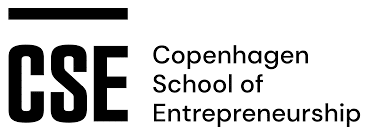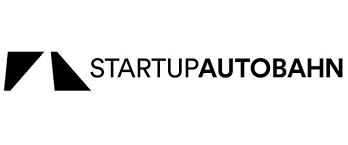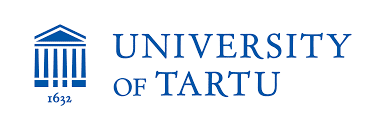Universities play an essential role in nurturing and bolstering the startup ecosystem. Through accelerator programs, universities encourage foster young talent and innovation, they support local economies and help to fill the gap between academia and the market. For this reason, it’s reported that half of all incubators and accelerator programs in the UK are managed or affiliated with universities.
Startup accelerators provide startup support and training for new entrepreneurs. Teams learn the tips and tricks of how to pitch projects to investors, create a business and do market testing. The duration of support can last three – ten months and it can be invaluable in a startup’s path to success.
By joining an accelerator program, startups are offered benefits like mentorship and educational workshops. University accelerator programs are extra unique in that they can give access to the university community, including staff, students, and alums.
Accelerators are cohort-based, and being a cohort member also puts products and services on display in front of all the other accelerator members, which could lead to sales or partnership deals.
Europe has a globally renowned prestige when it comes to academia and the university system is also proving an indispensable part of the continent’s vibrant startup ecosystem. Here, we take a look at some of the most interesting and supportive accelerators across Europe that are affiliated with leading regional universities and business schools.
It gives an overview of both niche accelerators with a focus on particular industries and more general programs.
 Copenhagen Business School: Go Grow is a 7-month accelerator program founded by Copenhagen Business School. The program is open to students or recent graduates (max. one year since graduation) in Denmark. Teams should have a developed product or functional prototype, some paying customers, or several letters of intent. The program is open to projects from different industries. However, projects should contribute to one of 16 UN sustainable development goals. The list of Go Grow alumni includes ClimAider (carbon footprint calculator) and innovative organic hair care brand Hairlust.
Copenhagen Business School: Go Grow is a 7-month accelerator program founded by Copenhagen Business School. The program is open to students or recent graduates (max. one year since graduation) in Denmark. Teams should have a developed product or functional prototype, some paying customers, or several letters of intent. The program is open to projects from different industries. However, projects should contribute to one of 16 UN sustainable development goals. The list of Go Grow alumni includes ClimAider (carbon footprint calculator) and innovative organic hair care brand Hairlust.
ESADE Business School: Located in the startup hub of Barcelona, ESADE hosts the eWorks Accelerator. It’s a selective program that aims to identify and support high-growth ideas and enhance the efficient development of entrepreneurial projects. The program runs once a year, leveraging the summer break to push for growth and ends with a Demo Day with investors. It’s free, instead based on merit, achievements and commitment and provides the foundation stones for new high-growth ventures. The 2021 edition featured the likes of SelvaMaté, Hubberly and Delivery Nation.
![]() DELFT University: The oldest Dutch public technical university launched its Accelerator Program in 2009 as a part of Yes! Delft Incubator. It is a 3-month program for hardware and digital startups who have built a working prototype or MVP and have the potential to scale. Apart from workshops and masterclasses, teams have access to an experienced mentor. This program does not take equity.
DELFT University: The oldest Dutch public technical university launched its Accelerator Program in 2009 as a part of Yes! Delft Incubator. It is a 3-month program for hardware and digital startups who have built a working prototype or MVP and have the potential to scale. Apart from workshops and masterclasses, teams have access to an experienced mentor. This program does not take equity.
![]() Bocconi: The B4i Accelerator is a 4-month structured program by the leading Italian business school Bocconi. This Accelerator is open to anyone, even without affiliation with the university. The startup should be a limited company with a prototype or MVP. The Accelerator focuses on three key areas: sustainability, digital tech, and supporting Italian excellence in the field of creative industries. B4i hosted different promising tech companies, such as Mine Crime (app analyzing crime data) and Mapo Tapo (app for rock climbing community).
Bocconi: The B4i Accelerator is a 4-month structured program by the leading Italian business school Bocconi. This Accelerator is open to anyone, even without affiliation with the university. The startup should be a limited company with a prototype or MVP. The Accelerator focuses on three key areas: sustainability, digital tech, and supporting Italian excellence in the field of creative industries. B4i hosted different promising tech companies, such as Mine Crime (app analyzing crime data) and Mapo Tapo (app for rock climbing community).
 Politecnico di Milano: Polihub is a startup Accelerator of Politecnico Di Milano that aims to increase the development of deep tech startups. The accelerator helps to fill the gap between research and business by providing access to funding and mentorship to promising tech companies. There are two programs, one lasting 3-4 months for teams working on a prototype and the other for startups who are ready for market, lasting 6 -8 months. The accelerator focuses on deep technologies and currently hosting 20+ teams, including Phononic Vibes that works on noise isolation solutions and NDB self-charging battery producer.
Politecnico di Milano: Polihub is a startup Accelerator of Politecnico Di Milano that aims to increase the development of deep tech startups. The accelerator helps to fill the gap between research and business by providing access to funding and mentorship to promising tech companies. There are two programs, one lasting 3-4 months for teams working on a prototype and the other for startups who are ready for market, lasting 6 -8 months. The accelerator focuses on deep technologies and currently hosting 20+ teams, including Phononic Vibes that works on noise isolation solutions and NDB self-charging battery producer.
 University of Stuttgart: STARTUP AUTOBAHN was launched in 2016 at the University of Stuttgart in Germany. It is a platform that aims to develop connections between industrial companies and young tech startups. The program’s duration is six months; during that time, participants have access to an ecosystem for successful participants. The program is focused on projects in the field of mobility, production, and enterprise. Currently, more than 60 projects have been implemented with corporate partners.
University of Stuttgart: STARTUP AUTOBAHN was launched in 2016 at the University of Stuttgart in Germany. It is a platform that aims to develop connections between industrial companies and young tech startups. The program’s duration is six months; during that time, participants have access to an ecosystem for successful participants. The program is focused on projects in the field of mobility, production, and enterprise. Currently, more than 60 projects have been implemented with corporate partners.
![]() ISEM: Atelier is an accelerator program for fashion startups cooperating with University de Nevarra in Spain. It is a seven-month accelerator that unites Spanish fashion companies and startups. During this period, companies will test the products on their value. The accelerator is open for legally established teams committed to sustainable development and wants to change the value chain of the fashion business.
ISEM: Atelier is an accelerator program for fashion startups cooperating with University de Nevarra in Spain. It is a seven-month accelerator that unites Spanish fashion companies and startups. During this period, companies will test the products on their value. The accelerator is open for legally established teams committed to sustainable development and wants to change the value chain of the fashion business.
![]() LUND University: Lund University operates an Elevate Program for students and researchers at the university. This is a program for projects willing to invest resources in getting investment-ready. It is free of charge and includes coaching, access to office space in VentureLab’s incubator, and workshops. The program is open to projects in different industries. Currently, there are more than 15 startups residing in the program, including zero-waste retail company Piletsch which is operating in Northern Germany.
LUND University: Lund University operates an Elevate Program for students and researchers at the university. This is a program for projects willing to invest resources in getting investment-ready. It is free of charge and includes coaching, access to office space in VentureLab’s incubator, and workshops. The program is open to projects in different industries. Currently, there are more than 15 startups residing in the program, including zero-waste retail company Piletsch which is operating in Northern Germany.
 Tartu University: This year, Tartu University in Estonia relaunched an accelerator program at CDL-Estonia. This program is an excellent choice for founders working on projects related to digital government, cyber security, and public health or genomics innovations. This is a part of CDL Creative Destruction Lab, an international accelerator program with streams in the USA and Europe.
Tartu University: This year, Tartu University in Estonia relaunched an accelerator program at CDL-Estonia. This program is an excellent choice for founders working on projects related to digital government, cyber security, and public health or genomics innovations. This is a part of CDL Creative Destruction Lab, an international accelerator program with streams in the USA and Europe.
 ETH Zurich and University of Zurich: Wyss Zurich is an accelerator embedded within the ETH Zurich and the University of Zurich. The program focuses on regenerative medicine, robotics, and related hybrid technologies. Wyss Zurich unites experts to form multidisciplinary teams, pooling their knowledge and expertise. The program is opened to groups affiliated with ETH Zurich or the University of Zurich. There are 11 alumni companies who have graduated from the Wyss program, including AnyMotion a robotics technology for industrial inspection which raised more than CHF 20 million in 2020.
ETH Zurich and University of Zurich: Wyss Zurich is an accelerator embedded within the ETH Zurich and the University of Zurich. The program focuses on regenerative medicine, robotics, and related hybrid technologies. Wyss Zurich unites experts to form multidisciplinary teams, pooling their knowledge and expertise. The program is opened to groups affiliated with ETH Zurich or the University of Zurich. There are 11 alumni companies who have graduated from the Wyss program, including AnyMotion a robotics technology for industrial inspection which raised more than CHF 20 million in 2020.
